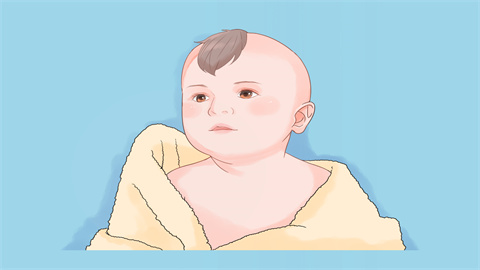What to do if a newborn has poor sleep
Generally, poor sleep in newborns may be caused by hunger or overfeeding, environmental discomfort, vitamin D deficiency rickets, neonatal pneumonia, neonatal sepsis, and other reasons. Treatment can be carried out under the guidance of a doctor using general treatments, medication, and other methods. A detailed analysis is as follows:

1. Hunger or overfeeding
Newborns have small stomach capacities and fast digestion, making them prone to hunger. When hungry, the body secretes hunger hormones that stimulate the nervous system, causing discomfort and making it difficult for the newborn to fall asleep or causing them to wake up crying during sleep. However, overfeeding can lead to indigestion and bloating, also causing discomfort and affecting sleep. It is recommended to learn the correct feeding amount and frequency. Generally, newborns should be fed on demand, with 5-10 ml per feeding in the first 1-2 days after birth. As the baby ages, the milk volume should gradually increase.
2. Environmental discomfort
Newborns are sensitive to environmental temperature, humidity, and noise. If the temperature is too high or too low, the newborn may feel hot or cold and be unable to sleep comfortably. Parents should create a quiet, comfortable sleeping environment for the newborn, using air conditioners, humidifiers, and other devices to regulate indoor temperature and humidity. Keep the room quiet and avoid loud noises or playing high-decibel music while the newborn is sleeping.
3. Vitamin D deficiency rickets
Vitamin D deficiency rickets mainly occurs due to insufficient vitamin D in the newborn's body, leading to disturbances in calcium and phosphorus metabolism and affecting bone development. Vitamin D deficiency can increase nervous system excitability, causing unstable sleep, easy awakening, excessive sweating, and other symptoms in newborns. There may also be枕秃 (hair loss at the back of the head), softening of the skull, and other skeletal changes. Treatment can include medications such as vitamin D drops, vitamin AD drops, and calcium lactate granules under the guidance of a doctor.
4. Neonatal pneumonia
Neonatal pneumonia may be caused by infection with pathogens such as bacteria, viruses, or mycoplasma. Lung inflammation impairs gas exchange, leading to rapid breathing, difficulty breathing, and physical discomfort that affects sleep. It may also be accompanied by refusal to feed and listlessness. Treatment may include medications such as Ceftriaxone Sodium for injection, Ribavirin Injection, and Azithromycin for oral suspension, according to medical advice.
5. Neonatal sepsis
Neonatal sepsis mainly occurs when pathogenic bacteria enter the newborn's bloodstream, grow and multiply there, and produce toxins that cause a systemic inflammatory response. It is often caused by infections of the umbilicus or skin. Sepsis causes general discomfort in newborns, with fever or failure to maintain body temperature, thus affecting sleep. Symptoms may also include drowsiness and worsening jaundice. Patients can be treated with medications such as Penicillin Sodium for injection, Cefotaxime Sodium for injection, and Meropenem for injection, as advised by a doctor.
In daily life, attention should be paid to the personal hygiene of newborns, frequent handwashing, keeping the skin clean, especially umbilical care, to prevent infection. Newborns should undergo regular medical check-ups to detect hidden health problems in a timely manner and follow medical advice for intervention and treatment.








